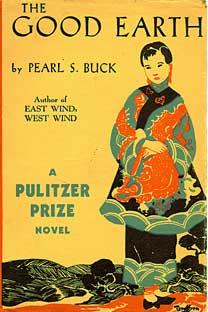 Pearl Buck's The Good Earth is an illustration of the life of a typical Chinese family of her time, and of the rise and fall of familial power in China.
Pearl Buck's The Good Earth is an illustration of the life of a typical Chinese family of her time, and of the rise and fall of familial power in China. My single biggest revelation about writing came at age 11. I realized that the poet was wrong; after the moving hand has written, you can still change the words. In otherwords, I discovered the miracle that is editing.
Let's face facts. While good poems seem like airy, delicate creations, they do not leap fully formed from the poet's mind onto the page. Famous poets (and other writers) have to sweat blood to produce their finished product. Whether you're writing a poem, an article for a magazine, a short story, or a paper for school, you'll need to edit, producing second and third drafts at least. No amount of kicking and screaming will change that.
The key to editing is to know what you want to say and keeping that goal in mind. What is the point of your story? You should be able to sum it up in one sentence. If you cannot, you do not know what your story about. Practice with other people's work. Even long and complex novels can be explained this way if you understand them. Thusly--
 Pearl Buck's The Good Earth is an illustration of the life of a typical Chinese family of her time, and of the rise and fall of familial power in China.
Pearl Buck's The Good Earth is an illustration of the life of a typical Chinese family of her time, and of the rise and fall of familial power in China.
Italo Calvino's Invisible Cities is a description of the different levels, shades, and perceptions of Venice. 
Yet keep the Golden Mean in mind. All things in moderation. Nothing is more boring than a sermon, and if it is difficult for you to strip a story to its bare bones, that means a writer did his job well. You do not want to bludgeon your readers. Margaret Atwood, author of A Handmaid's Tale and others, has an ax to grind and grind she does, constantly. For a closer look at this book, here is my review.
A good author knows how to be subtle.More about editing and lessons in subtlety to come, this page is still under construction.